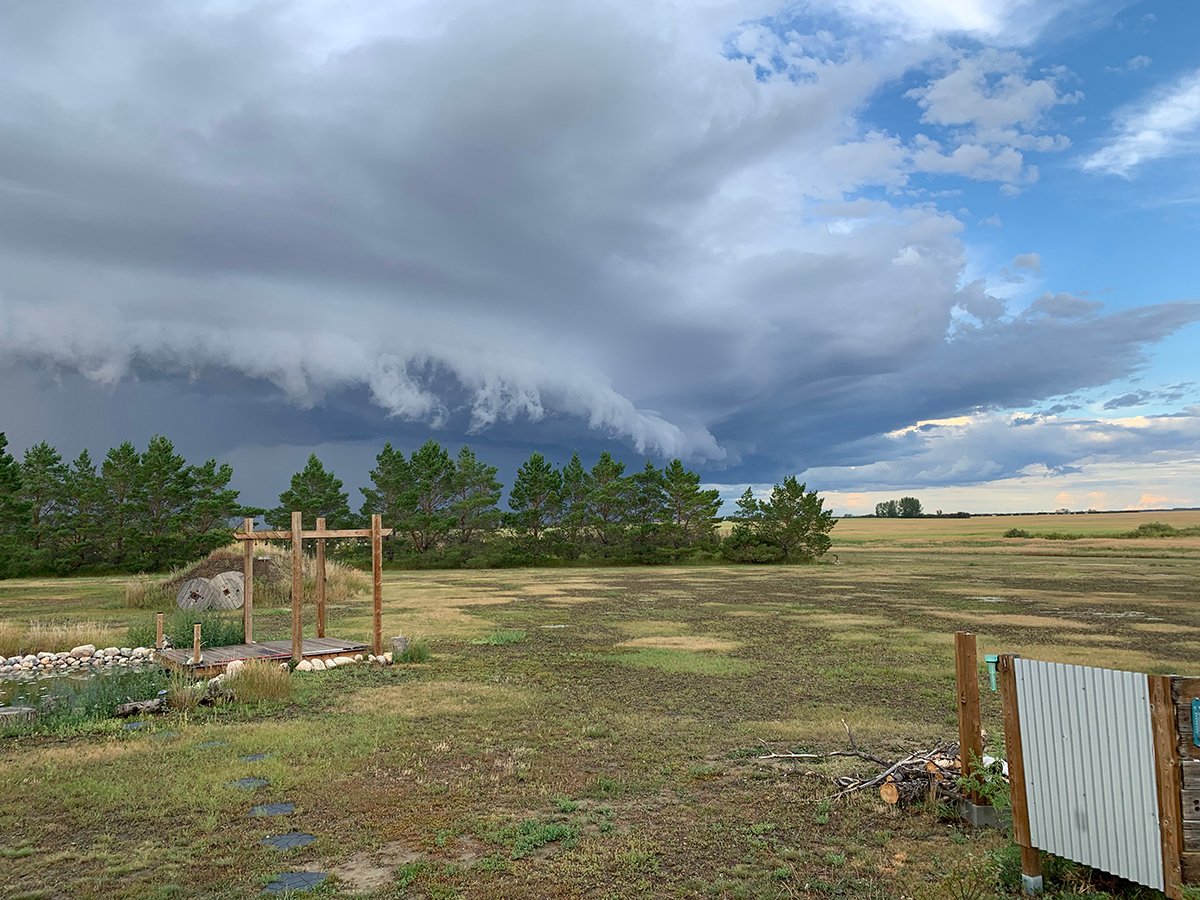A British Columbia rancher feels she is not being adequately compensated for her cattle herd, which was ordered destroyed after her bull tested positive for bovine tuberculosis.
Lynn Weinhardt said she and two third-party adjustors hired by the
Canadian Food Inspection Agency initially agreed the remaining 47 cows, two bulls and 17 calves had a value of $1,200 a head, plus the federal agency would pay to have the animals shipped and slaughtered.
However, after the animals were slaughtered in November, Weinhardt received a letter from CFIA officials stating the compensation did not reflect current market value and the values would be reassessed.
Read Also

Storm dynamics and extreme rainfall
Besides moisture, instability and orographic lift, the next biggest factor that contributes to heavy or extreme rainfall is storm dynamics.
“These were exceptional animals,” she said.
Under federal government rules, the maximum compensation allowed for a purebred beef animal is $8,000 and $2,500 for a non-registered animal.
“The cows have already gone. This is pretty emotional for us.”
The cattle were all that remained from a 525 head herd sold in two separate sales during the year. The bull was part of a group of 382 sold through Innisfail, Alta., Auction Markets in August.
The bull was resold through Vold Jones Vold auction in Ponoka, Alta., and ended up in a Quebec abattoir where the tuberculosis lesions were discovered during a routine post mortem inspection.
Once the ranch was declared a TB-infected location, the rest of the animals were ordered to be destroyed and tested.
“Our life has been one living hell with this CFIA,” said Weinhardt.
CFIA veterinarian George Luterbach said the third-party adjustors provide information on animal value, but their suggestions are not final.
“The challenge we have sometimes is the owners have expectations to try to recoup other losses. Unfortunately, we do not have the authority to address that,” said Luterbach.
The CFIA also looks at prices from local sales and market summaries across Western Canada to determine animal value.
“We do award compensation based on a healthy animal presented for sale,” he said.
Bovine TB has not been detected in livestock in B.C. since 1990, when it was found in a herd of farmed deer.
The last confirmed case of TB in cattle in B.C. occurred in 1976, and the last case reported in cattle anywhere in Canada was in 2004 in Manitoba.
The bull was bought from central Alberta in the spring of 2004. That farm is also under quarantine.
Weinhardt said the original Canadian Cattle Identification Agency ear tag was lost from the registered Charolais bull and it was retagged before it was sold.
The ranch still has 40 head of sheep about to lamb, a guard llama and two goats. Earlier, 35 pigs were also ordered destroyed.
The cattle were shipped Nov. 20 to Medallion Meats in Westwold, B.C., and the pigs to Inland Packers of Salmon Arm, B.C.
The ranch had been listed for sale, but has since been withdrawn from the market because of its quarantine status.
“Nobody wants it. They believe it’s TB infested,” she said.
“We’re in limbo.”














